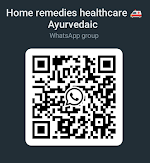 |
| What is Appendix(appendicitis)? |
What is an appendix?
The appendix is a slender tube-like organ attached to the cecum. The cecum is an organ of the large intestine. It is located in the lower-right part of the abdomen (between the chest and abdomen). Although the function of the appendix in the human body is still unknown, in animals it is used for digestion. Appendicitis is an emergency condition in which the appendix becomes inflamed and causes severe pain in the lower-right part of the abdomen. Additionally, people with appendicitis experience other symptoms such as vomiting, fever, and lower back pain. Doctors look for signs and symptoms, perform medical tests, or even suggest ultrasound, laboratory tests, or ct scans, if needed, to arrive at a diagnosis. An appendectomy or appendicectomy is a surgical procedure in which the appendix is removed through an incision in the lower abdomen. In some cases, antibiotic therapy is also used. When the small tube of the appendix becomes blocked by food or stool, it ruptures, spreading the germs it contains, and infecting the surrounding abdominal cells. In such cases, it is necessary to bring the infection under control within time.
Appendix symptoms
Appendix pain in the lower right side of the abdomen is associated with appendicitis. However, you may experience other symptoms associated with it, such as:
Diarrhea or constipation
Mild fever
Nausea or vomiting
Loss of appetite
Abdominal swelling
Stomach cramps or gas
Pain around the navel radiating to the lower-right side of the abdomen
Symptoms of appendicitis are aggravated by walking, pressing on the lower abdomen, or coughing.
Causes of appendix
Causes of appendicitis may include the following:
Infection in the appendix: this is the most common cause when a bacterial infection occurs in the appendix. This infection causes the appendix to become inflamed and swollen, which can create the perfect environment for pain, discomfort, and subsequent infection.
Blockage of traffic in the appendix: blockage of traffic in the appendix can also lead to appendicitis. It can block traffic and cause infection.
High blood pressure: appendicitis can be caused by blocking the blood supply to the appendix. High blood pressure (b/p) might be the main reason.
Digestive problems: the appendix has to act like a pipe for adhesion and blood supply. If there is a problem with digestion, this pipe can become blocked, which can increase the risk of appendicitis.
Changes in the internal structure of the appendix: many times the internal structure of the appendix changes which it can cause obstructions in the same area and develop appendicitis.
Home remedy for appendix
If you have symptoms of appendicitis and there is a delay in reaching the medical providers, some of the following home remedies may help in improving your condition:
Use of cold substances: use cold water or jalebi leaves to reduce the swelling of the stomach. This can give alleviate torment and enlarge.
Warm compress: placing a warm compress on the lower abdomen can reduce the pain. You soak a cloth in a cup of warm water, wring it thoroughly and then place it on your lower abdomen.
Uses of the pepsin plant: the pepsin plant is known to be a natural remedy for appendicitis. Extract the juice by grinding its leaves and mixing it with water. Drink this combination 2-3 times each day.
Diet and rest: in the case of appendicitis, diet and complete rest is important. Avoid heavy physical activities, meals, and complex digestive substances.
Diet: you should avoid dry and gas-causing food items. Drink more water, include natural fruits and vegetables in your diet, and reduce the intake of fried, spicy, and spicy food.
These are the measures given only as temporary material and they can only help you to improve your condition.
If you feel the symptoms of appendicitis, consult a doctor immediately so that you can get the right treatment.
Appendix treatment
Once appendicitis is diagnosed there is no option but surgery. Immediate surgery prevents further perforation of the appendix. Surgery to remove the appendix is called appendicectomy or appendicectomy.
Surgical treatment
Depending on the case of appendicitis, availability of options, and individual choice, the following are the treatments for appendectomy:
Laparoscopic treatment
It is the most preferred method due to its quick relief from the disease. This surgery uses special equipment and a flexible tube attached to a camera. The appendix is located and removed with these instruments through a small incision in the abdomen.
Laparotomy
In this surgery, the doctor removes the appendix through a single incision. This incision is made in the lower-right part of the abdomen. This procedure is chosen if there is peritonitis – an infection of the lining of the abdominal cavity.
Open surgery
Open surgery procedure is performed rather than laparoscopy when::
A person with appendicitis may have had previous abdominal surgery.
If an appendix mass (lump) has developed in the appendix
If the appendix is ruptured
Antibiotic therapy
Research comparing appendicitis surgery to antibiotic treatment shows that 70% of appendicitis cases heal without surgery with antibiotics. Antibiotics are usually given to people who cannot tolerate surgery. Iv (iv – intravenous – intravenous) antibiotics are given before appendectomy, preferably cephalosporins. If the appendix bursts open (perforated appendicitis), the pus is drained immediately and the patient is given antibiotics until the white blood cells and fever return to normal.
Lifestyle management
The following tips will help you recover quickly after being treated and sent home:
Do not take any antibiotics without your doctor's advice.
If you still have a fever, take your temperature every two hours.
Do not take painkillers. Pain medication can make it difficult to tell if the appendix is getting better or worse.
Do not eat or drink anything the next day before any physical examinations.
Do not use laxatives or enemas; he may be at risk of a ruptured appendix.
Get plenty of rest and sleep. Helps in quick recovery from an appendectomy.
Avoid straining your abdominal muscles and lifting heavy objects.
Include plenty of fiber in your diet. These substances relieve constipation and help ease bowel movements.
Drink plenty of water every day
Contact your doctor immediately if:
If you have blood in your urine or vomit
If you have trouble emptying your bowels for a long time
If there is persistent vomiting
If it seems to leak
If the intensity of abdominal pain increases
What is appendicitis?
Appendicitis is a medical emergency that can occur at any age but is most common in people between the ages of 10 and 30. Painful swelling or inflammation of the appendix, which is a finger-like pocket extending from the large intestine. The opening of the appendix is small, and food or stool can accumulate in it, sometimes causing blockages. Microbial infections develop due to these obstructions. If the appendix ruptures at this stage, this microbial infection spreads to the abdominal cavity and can be fatal if not treated in time. When the appendix is inflamed, you may experience intermittent pain in the abdomen (which comes and goes). Gradually the pain becomes severe and persistent. They settle in the right-lower part containing the appendix. The pain is aggravated by walking, coughing, or pressing the abdomen. Often fever, loss of appetite, and diarrhea are associated with appendicitis.
FAQ’s
Here are some important question-answer:
What is appendicitis?
Appendicitis is an abdominal disease characterized by infection and inflammation of the appendix, an organ located at the bottom of the abdomen. The disease manifests itself with pain, discomfort, vomiting and other symptoms.
What are the symptoms of appendicitis?
Symptoms of appendicitis may include severe pain, abdominal swelling, vomiting, loss of appetite, increased temperature, and mood changes.
What can be the causes of appendicitis?
Causes of appendicitis may include infection, obstruction of traffic, high blood pressure, digestive problems, and changes in the internal structure of the appendix.
What is the treatment for appendicitis?
The main treatment for appendicitis is an operation called an appendectomy, in which the appendix is removed. Apart from this, the infection can also be treated by medicines and medical treatment.
What are the precautions after appendicitis?
After an appendectomy, one must follow certain precautions after appendicitis. These precautions may include following the guidelines given by the doctor, consumption of medicines, and periodic medical check-ups.
How can appendicitis be prevented?
To prevent appendicitis, it is important to follow a healthy lifestyle, avoid infection, drink enough water, and avoid diet. It is also necessary to contact the doctor immediately at the sign of infection.




















0 Comments